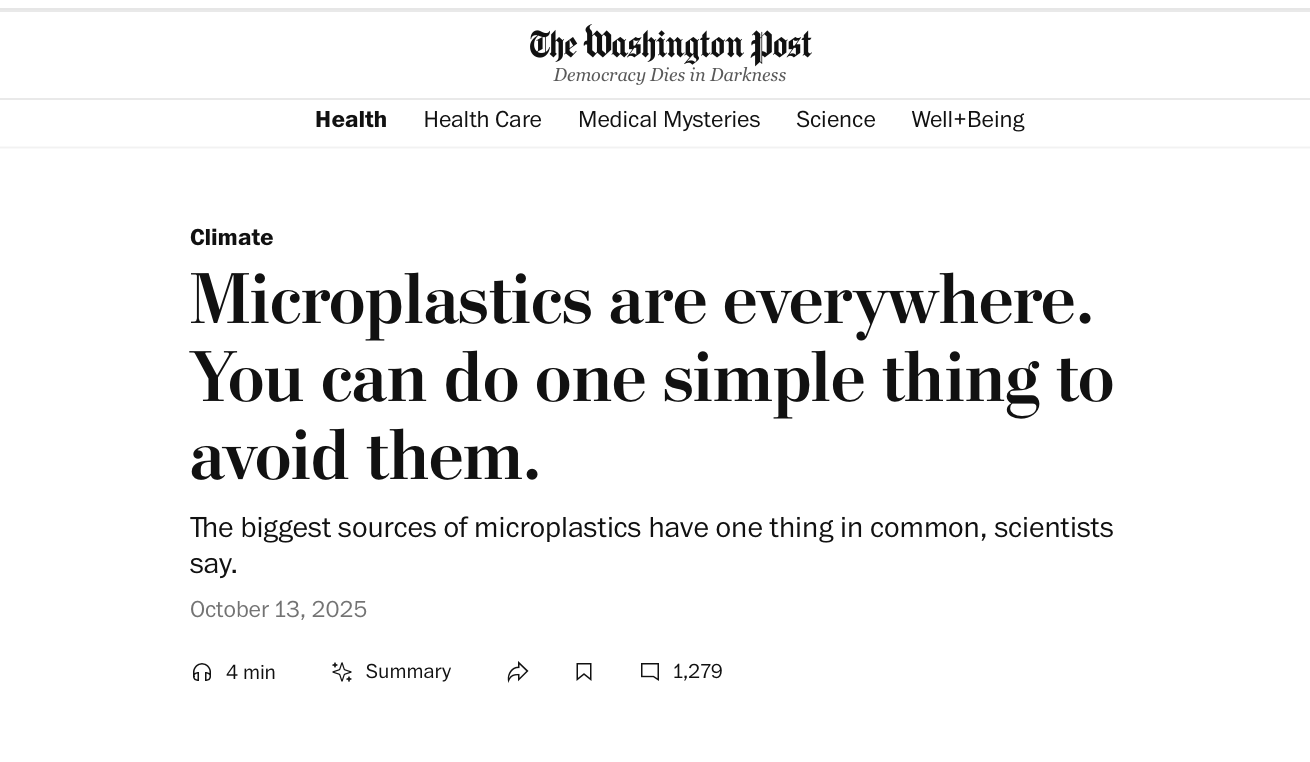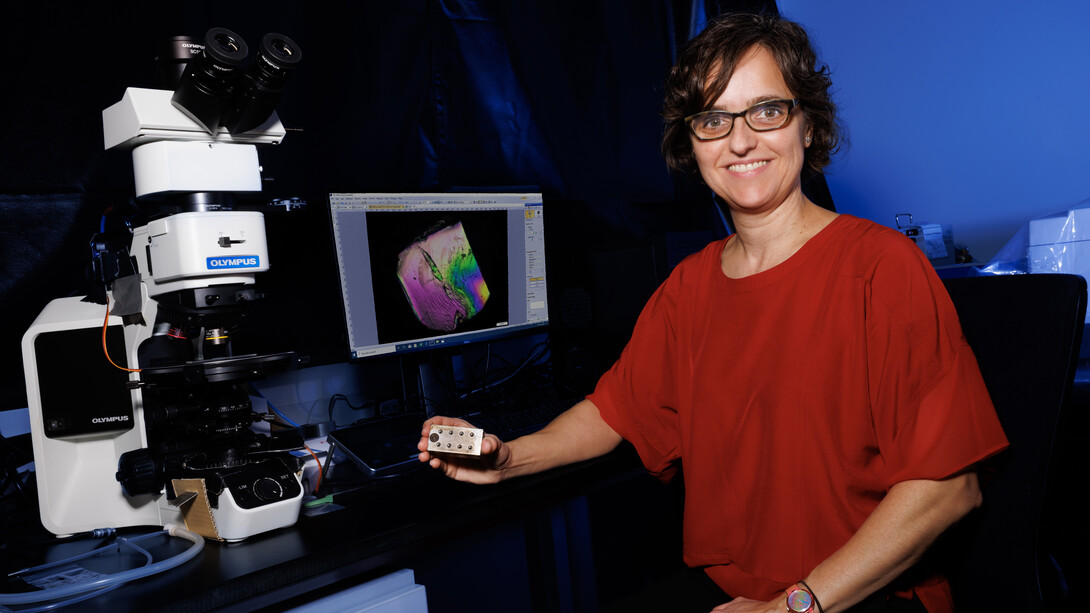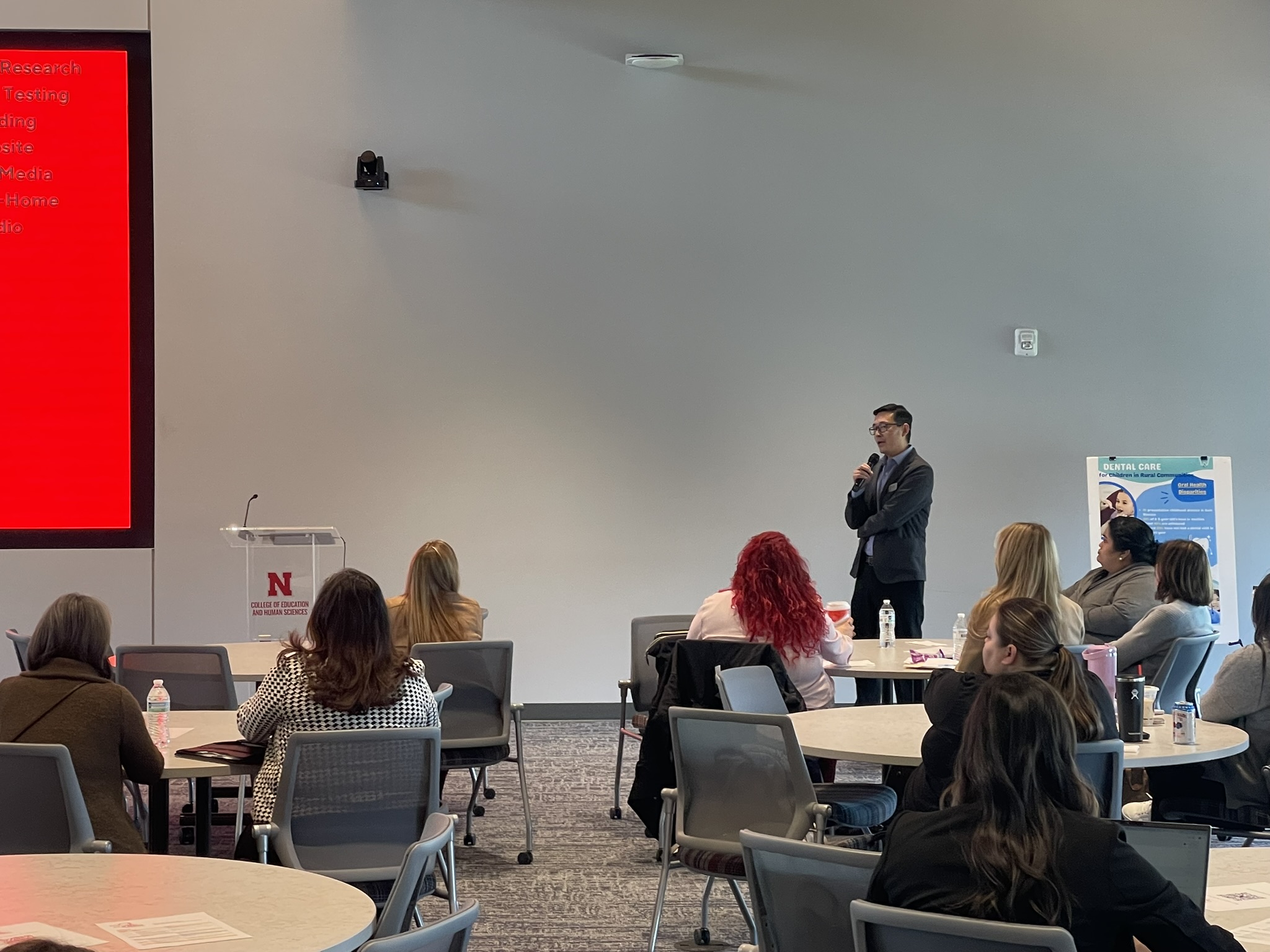UNL Micro- and Nano-plastics Researchers Featured in The Washington Post on Micro- and Nano-plastic Exposure and Health Risks
Our team's researchers, Dr. Kazi Albab Hussain and Dr. Changmin Yan, were recently interviewed by The Washington Post for a featured story on the growing concern over microplastic exposure. The article, published October 14, 2025, focuses on the team’s findings that heat is a key driver of micro- and nano-plastic release from common household plastics. Dr. Hussain shared insights about how everyday actions, such as microwaving baby food or pouring hot liquids into plastic cups, can release billions of nano-plastic particles. The story also noted emerging evidence of potential health risks associated with micro- and nano-plastic exposure.

NSF CAREER Award: Advancing Safer Plastics Research
We are proud to celebrate that in 2025, Dr. Lucía Fernández-Ballester, Assistant Professor of Mechanical & Materials Engineering and Co-PI of the Nebraska Nanoplastics Grand Challenges team, received the prestigious NSF CAREER Award, one of the National Science Foundation’s highest honors for early-career faculty. Her five-year project investigates how micro- and nanoplastics are released during polymer manufacturing, paving the way for safer, more sustainable materials. Alongside her groundbreaking research, she is also committed to outreach, developing programs that engage K–12 educators and inspire the next generation of scientists.

Nebraska Today: Amcor senior fellow to discuss packaging innovation, plastics research
Nebraska Today reports: Kevin Nelson, senior fellow in Amcor’s Global Core R&D Group, will visit the University of Nebraska–Lincoln on April 8, 2025, to deliver a research seminar. The event is hosted by Nebraska Nanoplastics and supported by the university’s Grand Challenges initiative.
Contact:
Dr. Lucia Fernandez-Ballester (lucia.fernandez@unl.edu)
Dr. Changmin Yan (cyan3@unl.edu)

Dr. Changmin Yan discusses the team’s translational research efforts with community health leaders across Nebraska.
At the Community Voices in Health Promotion Symposium, Dr. Changmin Yan highlighted the team's translational research on micro- and nanoplastics, focusing on how scientific findings are being applied to real-world health challenges. He shared insights on the risks posed by plastic particles in food and beverage containers, emphasized the importance of engaging communities in exposure reduction strategies, and discussed how partnerships across research, public health, and local organizations can drive efforts to create safer, more sustainable environments, especially for vulnerable populations in Nebraska.
